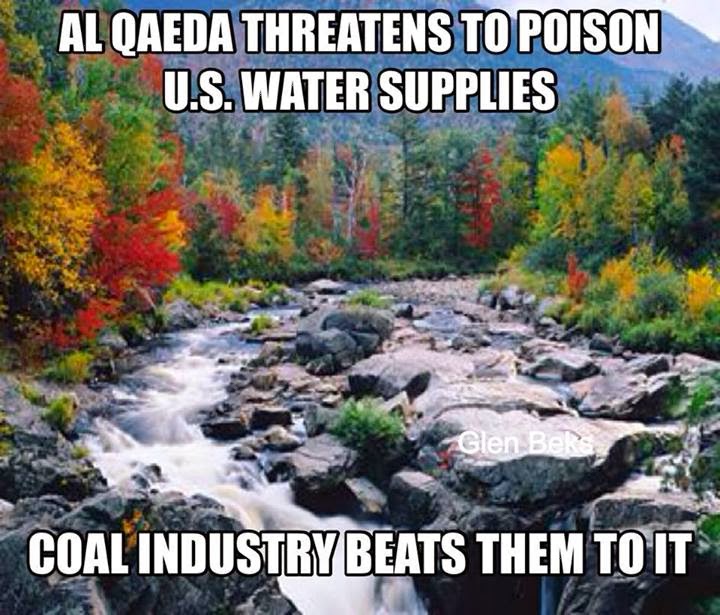July
24, 2013 - RIG FIRE IN GULF MAY BURN FOR 2 MONTHS, OFFICIALS SAY - A
drilling rig that caught fire late Tuesday after a natural gas well blew
out about 55 miles off the coast of Grand Isle could continue to burn
in the Gulf for several weeks while response crews work to permanently
shut in the well, an energy expert said Wednesday.
But owing to
a variety of factors, officials said the accident does not have the
potential to become an environmental disaster of major magnitude. Among
those factors: the well was in relatively shallow water; it is spewing
natural gas rather than crude oil; and all of the workers on the rig
were safely evacuated.
The Bureau of Safety and Environmental
Enforcement, which regulates the oil and gas industry, and the U.S.
Coast Guard are overseeing efforts to secure the well and put out the
fire.
The Coast Guard said the
fire broke out at about 10:45 p.m. Tuesday. During a fly-over to examine
the damage Wednesday, federal regulators said they saw no sheens on the
water surface in the area near the well.
The fly-over also
revealed that beams supporting the derrick and the rig floor collapsed
over the rig structure as the blaze continued. Two firefighting vessels
on the scene at the time were relocated. A third vessel, with better
fire-fighting capability, was expected to arrive Wednesday.
Walter Oil & Gas Corp., the Houston-based oil and production company
that was drilling the well, is moving a jack-up rig to the site with
the aim of drilling a relief well, a permanent means of shutting down
the well, authorities said Wednesday.
The Coast Guard is enforcing a five-mile safety zone around the rig, officials said.
“At this point, I think it appears to be of no threat to the
environment or to human life or to sea life for that matter,” Jefferson
Parish President John Young said Wednesday about the burning rig.
One local observer of the oil and gas industry said the company has few options other than drilling a relief well.
“They don’t have any choice right now,” said Eric Smith, an associate director of the Tulane Energy Institute.
Smith believes it could take 30 to 60 days for the relief well to be
drilled. During that time, the rig will likely continue to burn as the
natural gas from deep below the seabed rises to the surface. He
estimates that the rig is “a total loss, and that’s probably a $50
million bill on somebody’s tab.”
The well is in about 154 feet
of water. Crews were drilling the well at about 8:45 a.m. Tuesday on an
platform in the South Timbalier area of the Gulf, doing completion work
to prepare for production, when the well blew out. All 44 workers aboard
were safely evacuated, the company said.
The cause of the accident is under investigation.
http://theadvocate.com/news/
Quick/alert the warmists to environmental tragedy !
A
bizarre highly unusual phenomenon shocked the southern Philippine
residents as of this 8:00 am (UTC+08:00) there were confirmed reports
that a 3 straight hours of heavy snowfall was reported to certain areas
in the Southern region.
What
really happened at the Pentagon on 9/11? Barbara Honegger, one of the
key researchers into the Iran-Contra affair, and author of The October
Surprise, has done it again. The following is a long, but riveting
presentation that she recently did on what really happened at the
Pentagon on 9/11. She's bold, meticulous and has been working on this
for a decade. Check it out... http://youtu.be/4fvJ8nFa5Qk
9/11 Pentagon Attack - Behind the Smoke Curtain - Barbara Honegger
www.youtube.com
Barbara Honegger's presentation titled "Behind the Smoke Curtain" in Seattle's Town Hall Theater,
Staples, a frequent critic of increased military spending, questioned
both the logic and morality around turning Canada into a global arms
dealer."
“So I think there’s a concern that we could be
contributing to destabilizing relationships between countries or that
they will even be used against protest movements, indigenous peoples or
workers that are involved in labour action.”
http://o.canada.com/2013/07/
NEW YORK - RED ALERT!
Got Pipelines? Get ready for one of these dragons! They snort out
noxious fumes. They go BANG! in the night. They breathe fire.
There are 33 permitted compressor stations in Susquehanna County PA,
and most of these are already built, ~25 or so. There were none. Then 5,
now 25. This has happened in just 5 years.
The three largest compressors, all owned by Williams, all connect to
big ass interstate transmission lines, all have had explosions in 14
months, and NONE were scoped by FERC.
All of these and many more can be found within about 50 miles of Binghamton.
What kind of a thing grows this fast?
http://
— with Laurel Anna.
July
24, 2013 - RIG FIRE IN GULF MAY BURN FOR 2 MONTHS, OFFICIALS SAY - A
drilling rig that caught fire late Tuesday after a natural gas well blew
out about 55 miles off the coast of Grand Isle could continue to burn
in the Gulf for several weeks while response crews work to permanently
shut in the well, an energy expert said Wednesday.
But owing to
a variety of factors, officials said the accident does not have the
potential to become an environmental disaster of major magnitude. Among
those factors: the well was in relatively shallow water; it is spewing
natural gas rather than crude oil; and all of the workers on the rig
were safely evacuated.
The Bureau of Safety and Environmental
Enforcement, which regulates the oil and gas industry, and the U.S.
Coast Guard are overseeing efforts to secure the well and put out the
fire.
The Coast Guard said the
fire broke out at about 10:45 p.m. Tuesday. During a fly-over to examine
the damage Wednesday, federal regulators said they saw no sheens on the
water surface in the area near the well.
The fly-over also
revealed that beams supporting the derrick and the rig floor collapsed
over the rig structure as the blaze continued. Two firefighting vessels
on the scene at the time were relocated. A third vessel, with better
fire-fighting capability, was expected to arrive Wednesday.
Walter Oil & Gas Corp., the Houston-based oil and production company
that was drilling the well, is moving a jack-up rig to the site with
the aim of drilling a relief well, a permanent means of shutting down
the well, authorities said Wednesday.
The Coast Guard is enforcing a five-mile safety zone around the rig, officials said.
“At this point, I think it appears to be of no threat to the
environment or to human life or to sea life for that matter,” Jefferson
Parish President John Young said Wednesday about the burning rig.
One local observer of the oil and gas industry said the company has few options other than drilling a relief well.
“They don’t have any choice right now,” said Eric Smith, an associate director of the Tulane Energy Institute.
Smith believes it could take 30 to 60 days for the relief well to be
drilled. During that time, the rig will likely continue to burn as the
natural gas from deep below the seabed rises to the surface. He
estimates that the rig is “a total loss, and that’s probably a $50
million bill on somebody’s tab.”
The well is in about 154 feet
of water. Crews were drilling the well at about 8:45 a.m. Tuesday on an
platform in the South Timbalier area of the Gulf, doing completion work
to prepare for production, when the well blew out. All 44 workers aboard
were safely evacuated, the company said.
The cause of the accident is under investigation.
http://theadvocate.com/news/
July
24, 2013 - RIG FIRE IN GULF MAY BURN FOR 2 MONTHS, OFFICIALS SAY - A
drilling rig that caught fire late Tuesday after a natural gas well blew
out about 55 miles off the coast of Grand Isle could continue to burn
in the Gulf for several weeks while response crews work to permanently
shut in the well, an energy expert said Wednesday.
But owing to a variety of factors, officials said the accident does not have the potential to become an environmental disaster of major magnitude. Among those factors: the well was in relatively shallow water; it is spewing natural gas rather than crude oil; and all of the workers on the rig were safely evacuated.
The Bureau of Safety and Environmental Enforcement, which regulates the oil and gas industry, and the U.S. Coast Guard are overseeing efforts to secure the well and put out the fire.
The Coast Guard said the fire broke out at about 10:45 p.m. Tuesday. During a fly-over to examine the damage Wednesday, federal regulators said they saw no sheens on the water surface in the area near the well.
The fly-over also revealed that beams supporting the derrick and the rig floor collapsed over the rig structure as the blaze continued. Two firefighting vessels on the scene at the time were relocated. A third vessel, with better fire-fighting capability, was expected to arrive Wednesday.
Walter Oil & Gas Corp., the Houston-based oil and production company that was drilling the well, is moving a jack-up rig to the site with the aim of drilling a relief well, a permanent means of shutting down the well, authorities said Wednesday.
The Coast Guard is enforcing a five-mile safety zone around the rig, officials said.
“At this point, I think it appears to be of no threat to the environment or to human life or to sea life for that matter,” Jefferson Parish President John Young said Wednesday about the burning rig.
One local observer of the oil and gas industry said the company has few options other than drilling a relief well.
“They don’t have any choice right now,” said Eric Smith, an associate director of the Tulane Energy Institute.
Smith believes it could take 30 to 60 days for the relief well to be drilled. During that time, the rig will likely continue to burn as the natural gas from deep below the seabed rises to the surface. He estimates that the rig is “a total loss, and that’s probably a $50 million bill on somebody’s tab.”
The well is in about 154 feet of water. Crews were drilling the well at about 8:45 a.m. Tuesday on an platform in the South Timbalier area of the Gulf, doing completion work to prepare for production, when the well blew out. All 44 workers aboard were safely evacuated, the company said.
The cause of the accident is under investigation.
http://theadvocate.com/news/
But owing to a variety of factors, officials said the accident does not have the potential to become an environmental disaster of major magnitude. Among those factors: the well was in relatively shallow water; it is spewing natural gas rather than crude oil; and all of the workers on the rig were safely evacuated.
The Bureau of Safety and Environmental Enforcement, which regulates the oil and gas industry, and the U.S. Coast Guard are overseeing efforts to secure the well and put out the fire.
The Coast Guard said the fire broke out at about 10:45 p.m. Tuesday. During a fly-over to examine the damage Wednesday, federal regulators said they saw no sheens on the water surface in the area near the well.
The fly-over also revealed that beams supporting the derrick and the rig floor collapsed over the rig structure as the blaze continued. Two firefighting vessels on the scene at the time were relocated. A third vessel, with better fire-fighting capability, was expected to arrive Wednesday.
Walter Oil & Gas Corp., the Houston-based oil and production company that was drilling the well, is moving a jack-up rig to the site with the aim of drilling a relief well, a permanent means of shutting down the well, authorities said Wednesday.
The Coast Guard is enforcing a five-mile safety zone around the rig, officials said.
“At this point, I think it appears to be of no threat to the environment or to human life or to sea life for that matter,” Jefferson Parish President John Young said Wednesday about the burning rig.
One local observer of the oil and gas industry said the company has few options other than drilling a relief well.
“They don’t have any choice right now,” said Eric Smith, an associate director of the Tulane Energy Institute.
Smith believes it could take 30 to 60 days for the relief well to be drilled. During that time, the rig will likely continue to burn as the natural gas from deep below the seabed rises to the surface. He estimates that the rig is “a total loss, and that’s probably a $50 million bill on somebody’s tab.”
The well is in about 154 feet of water. Crews were drilling the well at about 8:45 a.m. Tuesday on an platform in the South Timbalier area of the Gulf, doing completion work to prepare for production, when the well blew out. All 44 workers aboard were safely evacuated, the company said.
The cause of the accident is under investigation.
http://theadvocate.com/news/
A
bizarre highly unusual phenomenon shocked the southern Philippine
residents as of this 8:00 am (UTC+08:00) there were confirmed reports
that a 3 straight hours of heavy snowfall was reported to certain areas
in the Southern region.
What
really happened at the Pentagon on 9/11? Barbara Honegger, one of the
key researchers into the Iran-Contra affair, and author of The October
Surprise, has done it again. The following is a long, but riveting
presentation that she recently did on what really happened at the
Pentagon on 9/11. She's bold, meticulous and has been working on this
for a decade. Check it out... http://youtu.be/4fvJ8nFa5Qk
9/11 Pentagon Attack - Behind the Smoke Curtain - Barbara Honegger
www.youtube.com
Barbara Honegger's presentation titled "Behind the Smoke Curtain" in Seattle's Town Hall Theater,
Staples, a frequent critic of increased military spending, questioned
both the logic and morality around turning Canada into a global arms
dealer."
“So I think there’s a concern that we could be
contributing to destabilizing relationships between countries or that
they will even be used against protest movements, indigenous peoples or
workers that are involved in labour action.”
http://o.canada.com/2013/07/
“So I think there’s a concern that we could be contributing to destabilizing relationships between countries or that they will even be used against protest movements, indigenous peoples or workers that are involved in labour action.”
http://o.canada.com/2013/07/
NEW YORK - RED ALERT!
Got Pipelines? Get ready for one of these dragons! They snort out
noxious fumes. They go BANG! in the night. They breathe fire.
There are 33 permitted compressor stations in Susquehanna County PA,
and most of these are already built, ~25 or so. There were none. Then 5,
now 25. This has happened in just 5 years.
The three largest compressors, all owned by Williams, all connect to
big ass interstate transmission lines, all have had explosions in 14
months, and NONE were scoped by FERC.
All of these and many more can be found within about 50 miles of Binghamton.
What kind of a thing grows this fast?
http://
— with Laurel Anna.
NEW YORK - RED ALERT!
Got Pipelines? Get ready for one of these dragons! They snort out noxious fumes. They go BANG! in the night. They breathe fire.
There are 33 permitted compressor stations in Susquehanna County PA, and most of these are already built, ~25 or so. There were none. Then 5, now 25. This has happened in just 5 years.
The three largest compressors, all owned by Williams, all connect to big ass interstate transmission lines, all have had explosions in 14 months, and NONE were scoped by FERC.
All of these and many more can be found within about 50 miles of Binghamton.
What kind of a thing grows this fast?
http://
— with Laurel Anna.
Got Pipelines? Get ready for one of these dragons! They snort out noxious fumes. They go BANG! in the night. They breathe fire.
There are 33 permitted compressor stations in Susquehanna County PA, and most of these are already built, ~25 or so. There were none. Then 5, now 25. This has happened in just 5 years.
The three largest compressors, all owned by Williams, all connect to big ass interstate transmission lines, all have had explosions in 14 months, and NONE were scoped by FERC.
All of these and many more can be found within about 50 miles of Binghamton.
What kind of a thing grows this fast?
http://
— with Laurel Anna.
PIPELINE DISASTER
The Alberta tar sands have been leaking into waterways for nine weeks with no signs of stopping. http://bit.ly/164WgjX
.The Alberta tar sands have been leaking into waterways for nine weeks with no signs of stopping. http://bit.ly/164WgjX
"We
should have free access to [that land] as treaty status Indians and we
have no access to it and we can't trust what we're being told now,"
explains Lameman.
http://www.dailykos.com/story/
"The scientist, who asked not to be named for fear of losing their job, said the operation was in chaos.
“Everybody (at the company and in government) is freaking out about
this,” said the scientist. “We don’t understand what happened. Nobody
really understands how to stop it from leaking, or if they do they
haven’t put the measures into place.”"
http://
“Everybody (at the company and in government) is freaking out about this,” said the scientist. “We don’t understand what happened. Nobody really understands how to stop it from leaking, or if they do they haven’t put the measures into place.”"
http://
- Geri M Jordan http://www.dailykos.com/story/2013/07/23/1225932/-Uncappable-underground-blowout-spills-thousands-of-barrels-of-tar-sands-oil-in-Cold-Lake-Alberta
 www.dailykos.comAt the microphone, Crystal Lameman of the Beaver Cree First Nation of Canada, speaking against the Keystone XL pipeline in Washington, D.C. in February 2013. A spill on traditional Cree land in ...
www.dailykos.comAt the microphone, Crystal Lameman of the Beaver Cree First Nation of Canada, speaking against the Keystone XL pipeline in Washington, D.C. in February 2013. A spill on traditional Cree land in ...
http://globalnews.ca/news/734227/alberta-enforcing-fewer-than-one-per-cent-of-oilsands-environmental-violations-report/
Last
week, Center for Investigative Report broke a horrifying story
detailing the continued practice of eugenics in California's women
prisons. Since the 1990's an estimated more than 250 people inside
women's prisons were illegally sterilized in the inherently coercive
prison environment. The testimonies are harrowing.
State-sanctioned sterilization abuse has a long and shameful history in
the U.S. that has disproportionately targeted women of color and
indigenous women, people living in poverty, and people with
disabilities. The abuse is grounded in fundamentally racist, classist,
and ableist ideas that say some women have the right to bodily integrity
and healthy reproduction and others not.
Too often female
prisoners are left out of conversations around reproductive justice,
despite the fact that, as this report reveals, they are particularly
vulnerable to institutionalized, gendered oppression.
State-sanctioned sterilization abuse has a long and shameful history in the U.S. that has disproportionately targeted women of color and indigenous women, people living in poverty, and people with disabilities. The abuse is grounded in fundamentally racist, classist, and ableist ideas that say some women have the right to bodily integrity and healthy reproduction and others not.
Too often female prisoners are left out of conversations around reproductive justice, despite the fact that, as this report reveals, they are particularly vulnerable to institutionalized, gendered oppression.
Website · 37,492 likes

Fukushima is No Longer a Japanese Problem. It is a “Global Media Blackout” Problem. It is a West...
beforeitsnews.com
”...a
creeping and never ending deadly fog of radiation, invisible to the eye
but not to the immune system, continues to blanket the West Coast while
its human cost is just beginning to be perceived... And remember
Obamaordered
Over the last three years, Cargill has received more than 61 million pounds of KLK palm oil.
Cargill sells this abuse-laden palm oil to the biggest food companies
in America—Nestlé, General Mills, Kraft Foods, Kellogg's—which in turn
sell it to YOU. That's just not right.
It's time for Cargill to answer some serious questions. Do you agree? Give em a call!
Questions for Cargill: http://bit.ly/18A3Bsi
Cargill Customer Service: 877-596-4069
*If you do take this brave action against slave labor today, please let us know Cargill's response in the comments below!
Over the last three years, Cargill has received more than 61 million pounds of KLK palm oil.
Cargill sells this abuse-laden palm oil to the biggest food companies in America—Nestlé, General Mills, Kraft Foods, Kellogg's—which in turn sell it to YOU. That's just not right.
It's time for Cargill to answer some serious questions. Do you agree? Give em a call!
Questions for Cargill: http://bit.ly/18A3Bsi
Cargill Customer Service: 877-596-4069
*If you do take this brave action against slave labor today, please let us know Cargill's response in the comments below!
Cargill sells this abuse-laden palm oil to the biggest food companies in America—Nestlé, General Mills, Kraft Foods, Kellogg's—which in turn sell it to YOU. That's just not right.
It's time for Cargill to answer some serious questions. Do you agree? Give em a call!
Questions for Cargill: http://bit.ly/18A3Bsi
Cargill Customer Service: 877-596-4069
*If you do take this brave action against slave labor today, please let us know Cargill's response in the comments below!
IRT supports Ghana!! Campaigners in Ghana are opposing the US-driven imposition of GM foods.
---
---
GM crops: campaigners in Ghana accuse US of pushing modified food
Afua Hirsch, west Africa correspondent
The Guardian, 24 July 2013
*From farmers to MPs, debate over seed ownership and the role of
foreign influences on agriculture is causing divisions in Ghana
The US embassy in Accra held a roundtable on biotechnology this month.
The discussion, designed to promote candid dialogue between
biotechnology supporters and sceptics, was attended by experts and
campaign groups on both sides of the GM foods debate.
But one
Ghanaian campaign group refused the invitation. "Our call for a
moratorium on GM foods was met with an invitation to a closed-door
discussion," said Duke Tagoe, of Food Sovereignty Ghana, which campaigns
for greater transparency about GM foods. "We are deeply worried about
what seems like an imposition of genetically modified foods on the good
people of Ghana without any meaningful public discourse, compounded by
attempts to stifle any opposition."
Food Sovereignty Ghana and
other domestic organisations accuse the US and other foreign donors of
promoting GM foods to west African countries, and tying aid to
implementation.
According to a leaked cable, the US government
was heavily involved in drafting Ghana's 2011 Biosafety Act, which
provided a framework for the introduction of GM foods. The US aid
department provided technical assistance and some funding.
The
cable said biotech products were being sold in Ghana and GM seeds from
neighbouring countries were likely to have migrated over its borders. US
companies have begun requesting permission to conduct trials.
The US embassy in Accra declined to respond to a request by the Guardian
to comment on its stance on GM food in Ghana, but claims about the
arrival of GM are supported by public officials.
"GM foods are
used in agriculture. This is something you cannot wish away because it
has come and it is in practice," said John Odame Darkwa, acting chief
executive officer of Ghana's Food and Drugs Authority (FDA). "We ensure
that any food imported into the country is safe."
But
campaigners say trials of GM foods, which the FDA admits have been
carried out in Ghana, are a violation of the law, which states trials
require the written approval of a new body, the National Biosafety
Authority. The problem, they say, is that this authority does not exist
yet.
"Trials are being conducted, but there isn't any framework
in place," said Kweku Dadzie, from Food Sovereignty Ghana. "We are
calling for a ban on the importation, cultivation, consumption and sale
of genetically modified foods and crops, until the people of Ghana are
satisfied that such an important and irrevocable decision is a sound and
proper one to make."
Dadzie points to a lack of public debate
surrounding the passing of the Biosafety Act. Maxwell Kofi Jumah, MP for
Asokwa, recently admitted on local radio that ministers lacked
understanding of the issues.
Many opponents of GM crops have
pointed to the role of multinational companies that sell GM "hybrid"
seeds that do not self-pollinate, compelling farmers to buy new seeds
from the same companies each year, as well as their pesticides and
herbicides.
Tagoe said: "Farmers in Ghana have had their own
way of keeping seeds year after year. If these policies are allowed to
manifest, Ghanaian farmers will have to change money into foreign
[currency] in order to purchase seeds from overseas firms. The economic
impact on the lives of the farmers will be disastrous. The origin of
food is seed. Whoever controls the seed controls the entire food chain.
These seeds are not owned by any African entity, they are owned by
American companies."
However, experts say there are advantages
to the technology. The chief executive of CGIAR Consortium on
agricultural research, Dr Frank Rijsberman, said: "Private companies
could develop self-pollinating seeds that also provide higher yields,
but they don't because it's not profitable.
"But at the same
time, the quality of seeds that pollinate themselves is often not that
great. It can be difficult for farmers to select the best seeds. The job
of seed companies is to select seeds that will have a bigger yields.
The best hybrid rice, for example, produce about 20% better yields than
the best self-pollinating seeds."
Some say that, instead of
looking at yield increases through GM, the focus should be on improving
access to markets for the crops that are already being grown by greater
investment in extension services and low-technology improvements in
farming.
"There is huge potential to increase yields using
low-cost and existing technologies," said Kanayo Nwanze, president of
the International Fund for Agricultural Development, speaking at the
Africa Agricultural Science Week in Accra last week. "In Africa, only
about 6% of the total cultivated land is irrigated … It is estimated
that irrigation alone could increase output by up to 50% in Africa.
"Small increases in fertiliser use in sub-Saharan Africa can produce
dramatic improvements in yields. Post-harvest grain losses in
sub-Saharan Africa average $4bn every year. This is food that could meet
the nutritional needs of around 48 million people."
Rijsberman
said farmers needed better seeds, but also required better access to
inputs, access to markets, farming systems and livelihood strategies.
"These things would go a long way to improving yields and incomes in a
country like Ghana," he added.
---
---
GM crops: campaigners in Ghana accuse US of pushing modified food
Afua Hirsch, west Africa correspondent
The Guardian, 24 July 2013
*From farmers to MPs, debate over seed ownership and the role of foreign influences on agriculture is causing divisions in Ghana
The US embassy in Accra held a roundtable on biotechnology this month. The discussion, designed to promote candid dialogue between biotechnology supporters and sceptics, was attended by experts and campaign groups on both sides of the GM foods debate.
But one Ghanaian campaign group refused the invitation. "Our call for a moratorium on GM foods was met with an invitation to a closed-door discussion," said Duke Tagoe, of Food Sovereignty Ghana, which campaigns for greater transparency about GM foods. "We are deeply worried about what seems like an imposition of genetically modified foods on the good people of Ghana without any meaningful public discourse, compounded by attempts to stifle any opposition."
Food Sovereignty Ghana and other domestic organisations accuse the US and other foreign donors of promoting GM foods to west African countries, and tying aid to implementation.
According to a leaked cable, the US government was heavily involved in drafting Ghana's 2011 Biosafety Act, which provided a framework for the introduction of GM foods. The US aid department provided technical assistance and some funding.
The cable said biotech products were being sold in Ghana and GM seeds from neighbouring countries were likely to have migrated over its borders. US companies have begun requesting permission to conduct trials.
The US embassy in Accra declined to respond to a request by the Guardian to comment on its stance on GM food in Ghana, but claims about the arrival of GM are supported by public officials.
"GM foods are used in agriculture. This is something you cannot wish away because it has come and it is in practice," said John Odame Darkwa, acting chief executive officer of Ghana's Food and Drugs Authority (FDA). "We ensure that any food imported into the country is safe."
But campaigners say trials of GM foods, which the FDA admits have been carried out in Ghana, are a violation of the law, which states trials require the written approval of a new body, the National Biosafety Authority. The problem, they say, is that this authority does not exist yet.
"Trials are being conducted, but there isn't any framework in place," said Kweku Dadzie, from Food Sovereignty Ghana. "We are calling for a ban on the importation, cultivation, consumption and sale of genetically modified foods and crops, until the people of Ghana are satisfied that such an important and irrevocable decision is a sound and proper one to make."
Dadzie points to a lack of public debate surrounding the passing of the Biosafety Act. Maxwell Kofi Jumah, MP for Asokwa, recently admitted on local radio that ministers lacked understanding of the issues.
Many opponents of GM crops have pointed to the role of multinational companies that sell GM "hybrid" seeds that do not self-pollinate, compelling farmers to buy new seeds from the same companies each year, as well as their pesticides and herbicides.
Tagoe said: "Farmers in Ghana have had their own way of keeping seeds year after year. If these policies are allowed to manifest, Ghanaian farmers will have to change money into foreign [currency] in order to purchase seeds from overseas firms. The economic impact on the lives of the farmers will be disastrous. The origin of food is seed. Whoever controls the seed controls the entire food chain. These seeds are not owned by any African entity, they are owned by American companies."
However, experts say there are advantages to the technology. The chief executive of CGIAR Consortium on agricultural research, Dr Frank Rijsberman, said: "Private companies could develop self-pollinating seeds that also provide higher yields, but they don't because it's not profitable.
"But at the same time, the quality of seeds that pollinate themselves is often not that great. It can be difficult for farmers to select the best seeds. The job of seed companies is to select seeds that will have a bigger yields. The best hybrid rice, for example, produce about 20% better yields than the best self-pollinating seeds."
Some say that, instead of looking at yield increases through GM, the focus should be on improving access to markets for the crops that are already being grown by greater investment in extension services and low-technology improvements in farming.
"There is huge potential to increase yields using low-cost and existing technologies," said Kanayo Nwanze, president of the International Fund for Agricultural Development, speaking at the Africa Agricultural Science Week in Accra last week. "In Africa, only about 6% of the total cultivated land is irrigated … It is estimated that irrigation alone could increase output by up to 50% in Africa.
"Small increases in fertiliser use in sub-Saharan Africa can produce dramatic improvements in yields. Post-harvest grain losses in sub-Saharan Africa average $4bn every year. This is food that could meet the nutritional needs of around 48 million people."
Rijsberman said farmers needed better seeds, but also required better access to inputs, access to markets, farming systems and livelihood strategies. "These things would go a long way to improving yields and incomes in a country like Ghana," he added.
Institute for Responsible Technology shared a link.

FDA Poised to Release Guidance Restricting Outdoor Access for Organic Poultry - Cornucopia Institute
www.cornucopia.org
Draft
Rules Favor Industrial-Scale Operations Over Family Farms On Tuesday,
July 23, The Food and Drug Administration (FDA) will release a draft
guidance for organic egg producers (and other farmers who allow






!["We should have free access to [that land] as treaty status Indians and we have no access to it and we can't trust what we're being told now," explains Lameman.
http://www.dailykos.com/story/2013/07/23/1225932/-Uncappable-underground-blowout-spills-thousands-of-barrels-of-tar-sands-oil-in-Cold-Lake-Alberta](https://fbcdn-sphotos-h-a.akamaihd.net/hphotos-ak-ash4/s403x403/999090_10201322040630179_1773513920_n.jpg)


















No comments:
Post a Comment